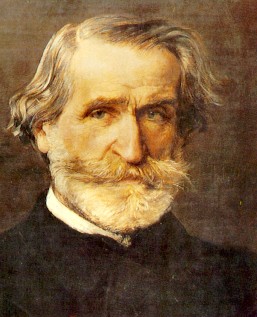 I can’t believe no one in Toronto has programmed Giuseppe Verdi’s wonderful, sole string quartet to help mark the 200th anniversary of his birth, which falls today (there is also a version for string orchestra that someone could have used).
I can’t believe no one in Toronto has programmed Giuseppe Verdi’s wonderful, sole string quartet to help mark the 200th anniversary of his birth, which falls today (there is also a version for string orchestra that someone could have used).
- Classical Music 101: What Does A Conductor Do? - June 17, 2019
- Classical Music 101 | What Does Period Instrument Mean? - May 6, 2019
- CLASSICAL MUSIC 101 | What Does It Mean To Be In Tune? - April 23, 2019
Unlike Richard Wagner, who shares the same anniversary year, Verdi was not only a great composer, but a decent guy, to boot.
As Rupert Christiansen wrote in The Telegraph yesterday:
Yet what a model of integrity he offers today’s creative artists, with their febrile quest for novelty and sensation. Verdi, in contrast, ploughed his professional furrow for three score and 10 years, steadily improving his technique and broadening his vision: almost every opera he wrote, from Un Giorno di Regno in 1840 to Falstaff in 1893 improves or advances in some dogged way on its predecessor, underpinned by a fundamentally noble view of humanity that balances compassion with justice. He may have been gruffly sceptical, disdaining lickspittle politicians and pretentious frauds, but he was without cynicism: his moral values were rock-solid and unassailable, rooted in the soil of Emilia-Romagna and an entirely realistic sense of his own abilities and worth.
Nearly everyone has heard something from a Verdi opera — whether they realise it or not. But his String Quartet in E minor remains underperformed. It’s a fine piece of music, though, written to distract himself in Naples in March, 1873, when a revival of Aida had to be postponed because prima donna Teresa Stolz wasn’t well.
The first performance happened at his hotel on April 1, for a small group of friends, who asked for a repeat. Despite this, Verdi wanted to slip the work into a drawer permanently. He is said to have been such a fan of the great Viennese quartets that he couldn’t hold his own creation up to that light. However, pestered by his publisher Ricordi, he agreed to have the quartet published in 1876.
The great, fugal finale is a clear ode to the Viennese. This man of the opera stage knew his counterpoint as well as any German-speaking composer.
Here is the Melos Quartet with the original final (fourth) movement, marked Scherzo, Fuga:
And this is the full work, as presented in its string-orchestra version (by Carl Hermann) at the BBC Proms two months ago by Antonio Pappano and the Orchestra of the Academy of Santa Cecilia in Rome at Royal Albert Hall:
http://youtu.be/fBDyQHHeZ00
- Classical Music 101: What Does A Conductor Do? - June 17, 2019
- Classical Music 101 | What Does Period Instrument Mean? - May 6, 2019
- CLASSICAL MUSIC 101 | What Does It Mean To Be In Tune? - April 23, 2019



